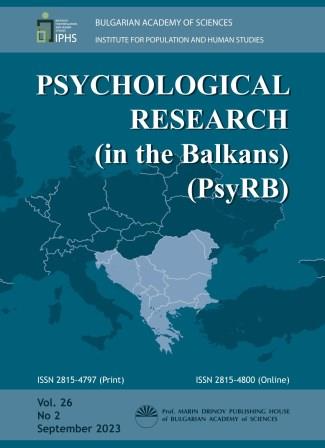VOCATIONAL CHOICE AND STROKE ECONOMY IN SEVENTH GRADE STUDENTS FROM LOW SOCIO-ECONOMIC STATUS FAMILIES
VOCATIONAL CHOICE AND STROKE ECONOMY IN SEVENTH GRADE STUDENTS FROM LOW SOCIO-ECONOMIC STATUS FAMILIES
Author(s): Sezgin BekirSubject(s): Social Sciences, Psychology, Sociology, Social psychology and group interaction, Personality Psychology, Family and social welfare, Environmental interactions
Published by: Институт за изследване на населението и човека - Българска академия на науките
Keywords: vocational guidance; transactional analysis; stroke economy; adolescents.
Summary/Abstract: Socio-economic status and relationships between family members are factors that have an impact on adolescents‘ professional orientation. The report presents results from a study of vocational choice, relationship patterns as measured by the stroke economy, and the educational level of parents of adolescents from low socio-economic status families. The sample includes 195 adolescents, students in the seventh grade, and 109 of them indicate that they have made their vocational choice. According to the obtained results, the studied adolescents are oriented towards professions in the fields of health care and services. Leading stroke economy patterns are „Don‘t accept“ and „Don‘t give yourself“, which is expressed in a tendency to devalue one‘s own achievements and successes. It was also established that more than half of the parents of adolescents (60.47% of fathers and 69,77% of mothers) who have not made a vocational choice have basic (primary or lower secondary) education. The results testify to the role of parents‘ education as a factor that probably has an effect on the process of vocational guidance of adolescents. Significant differences in the stroke economy were found, as in adolescents who have made a vocational choice the „Don‘t ask“ style dominates, while in adolescents with a lack of vocational choice the „Don‘t give yourself“ style dominates. The results of the research can be used in the implementation of various educational and training programs for social inclusion, vocational guidance, and career development of adolescents from low socio-economic status families.
Journal: Psychological Research (in the Balkans)
- Issue Year: 26/2023
- Issue No: 2
- Page Range: 8-16
- Page Count: 9
- Language: English

